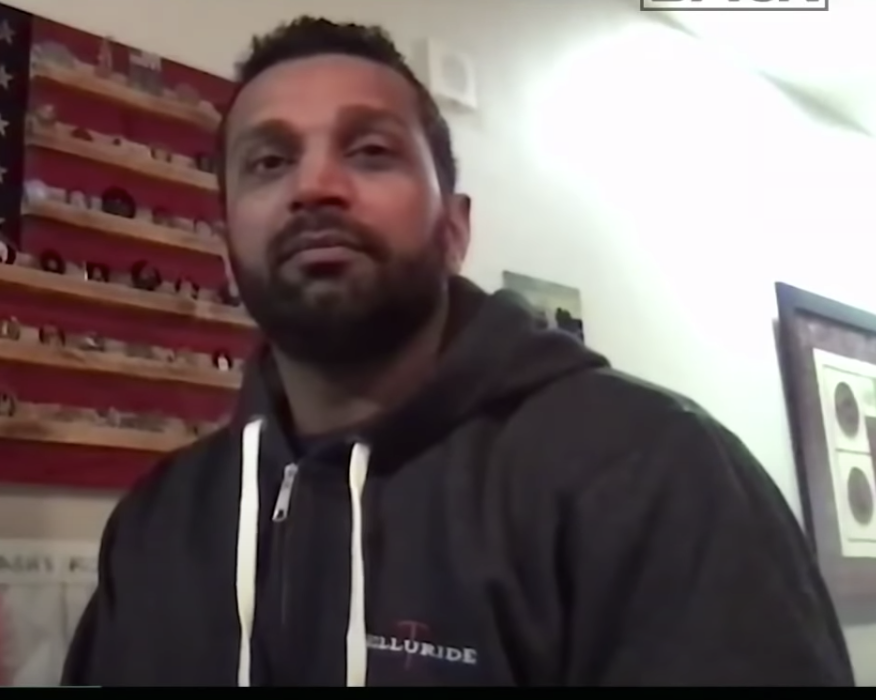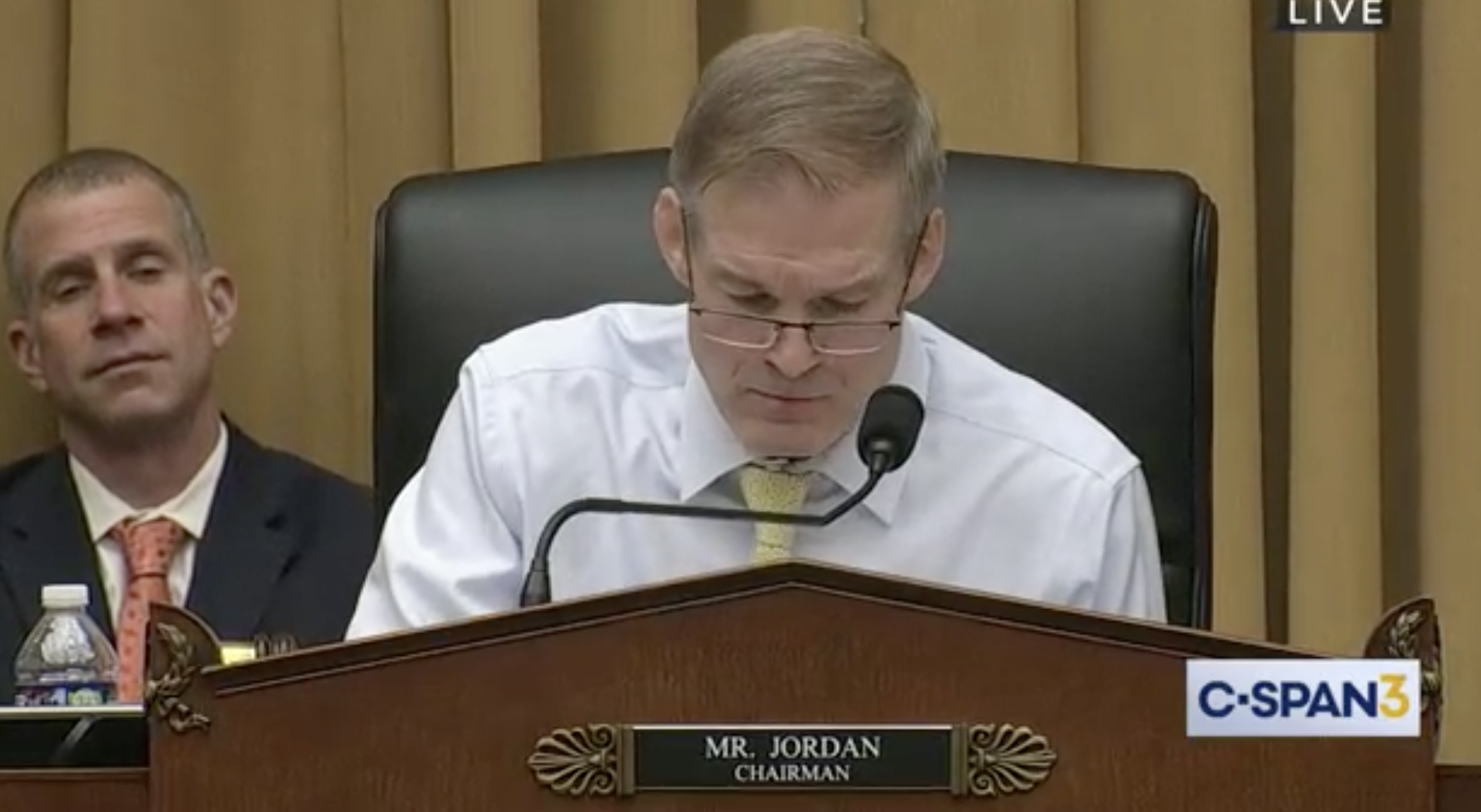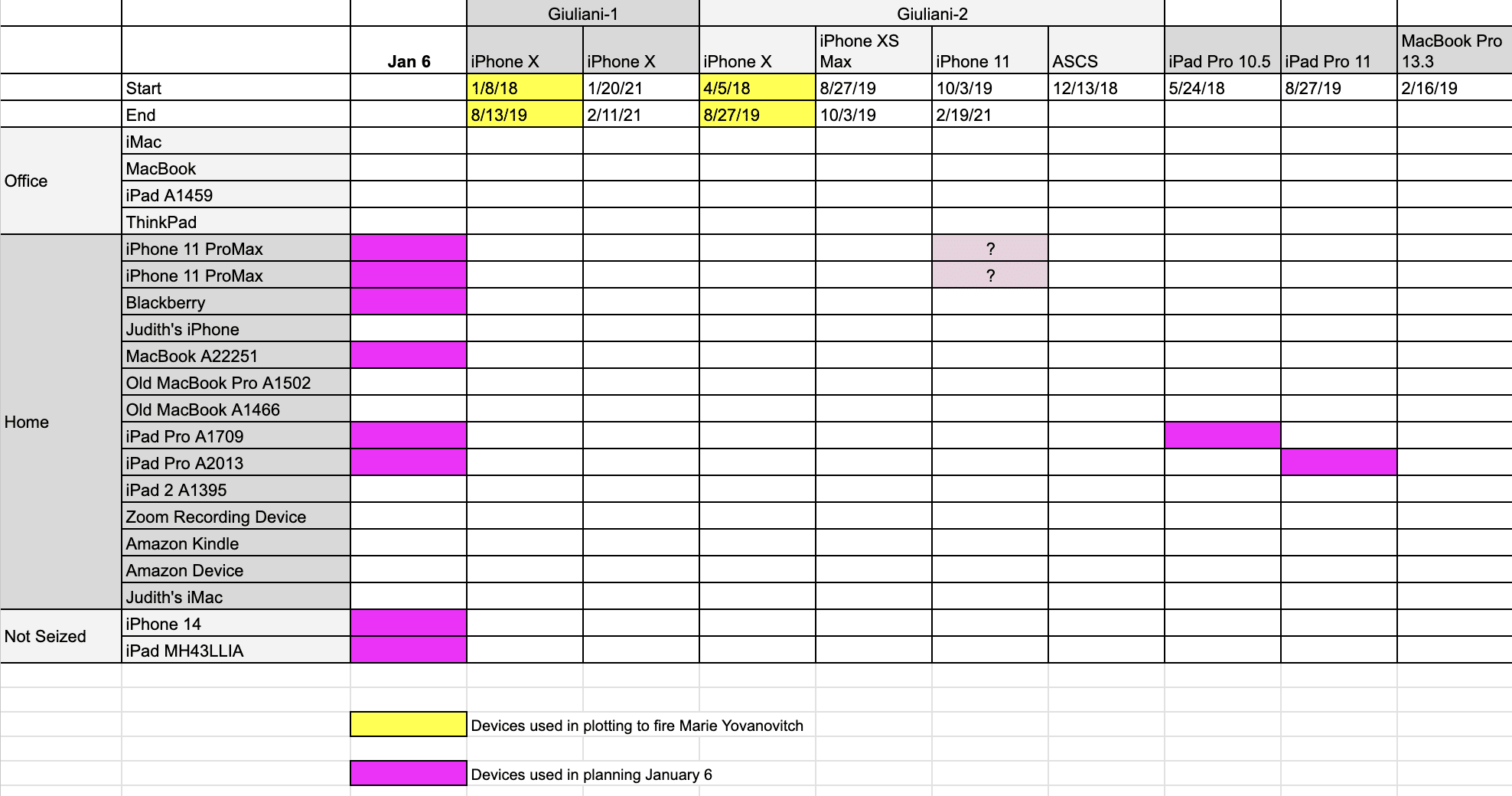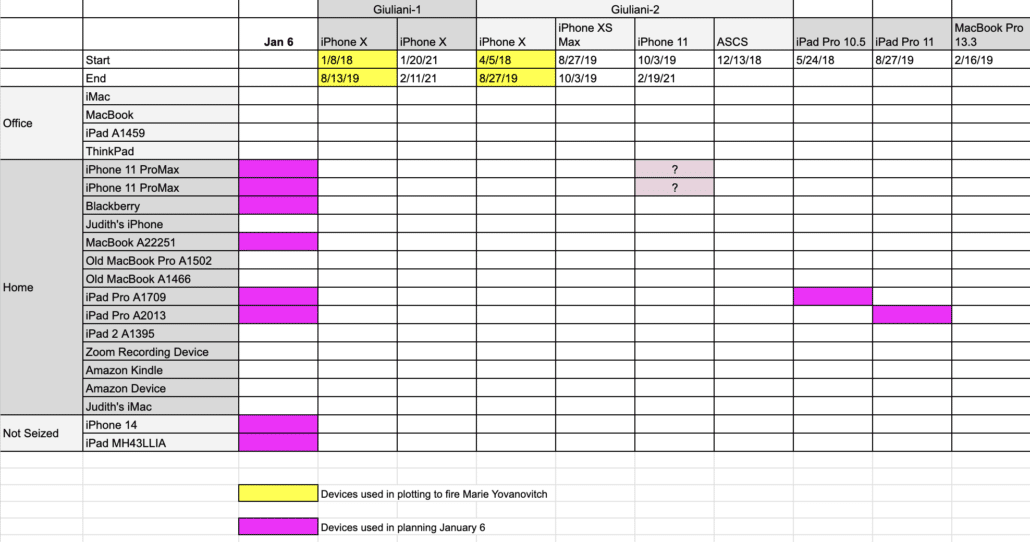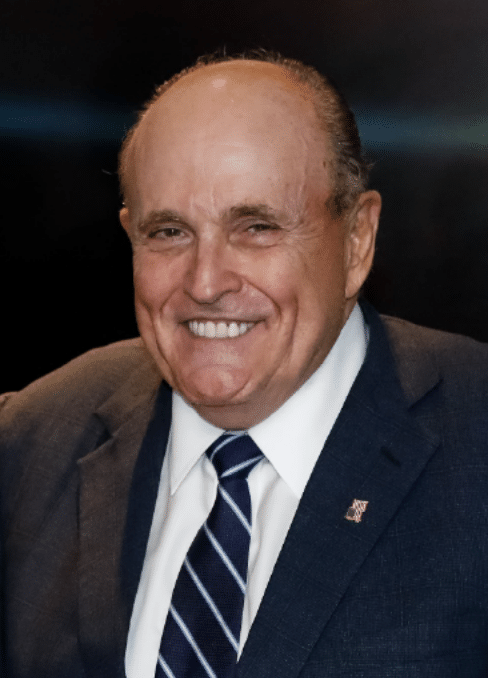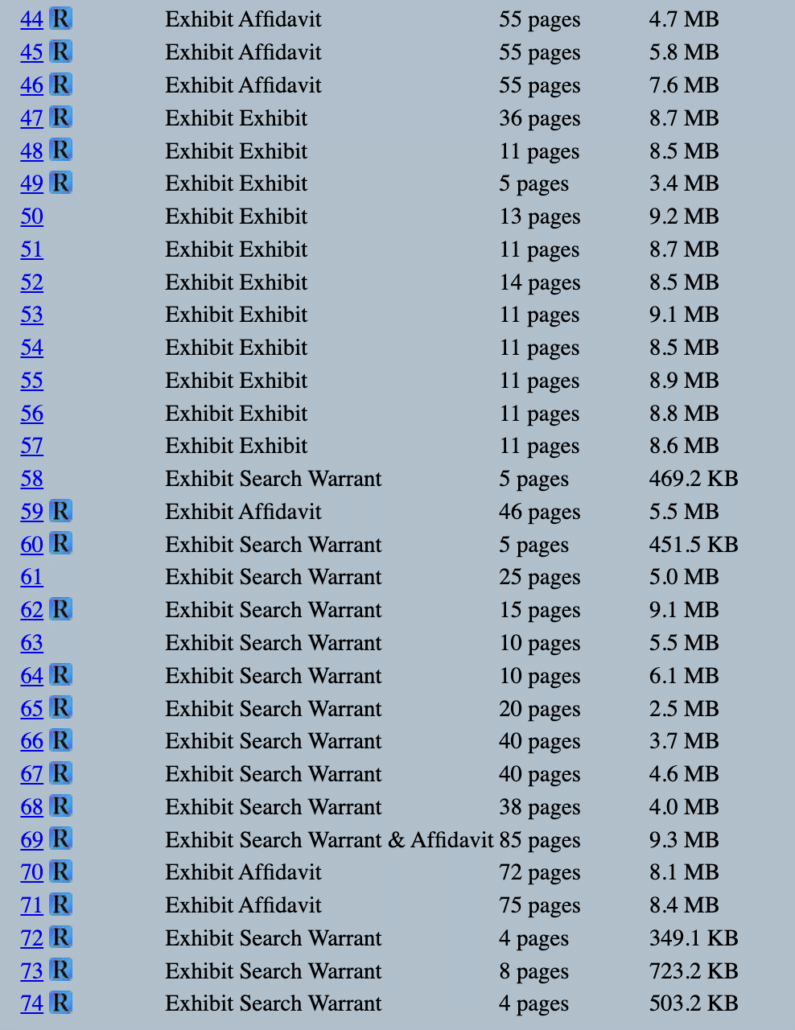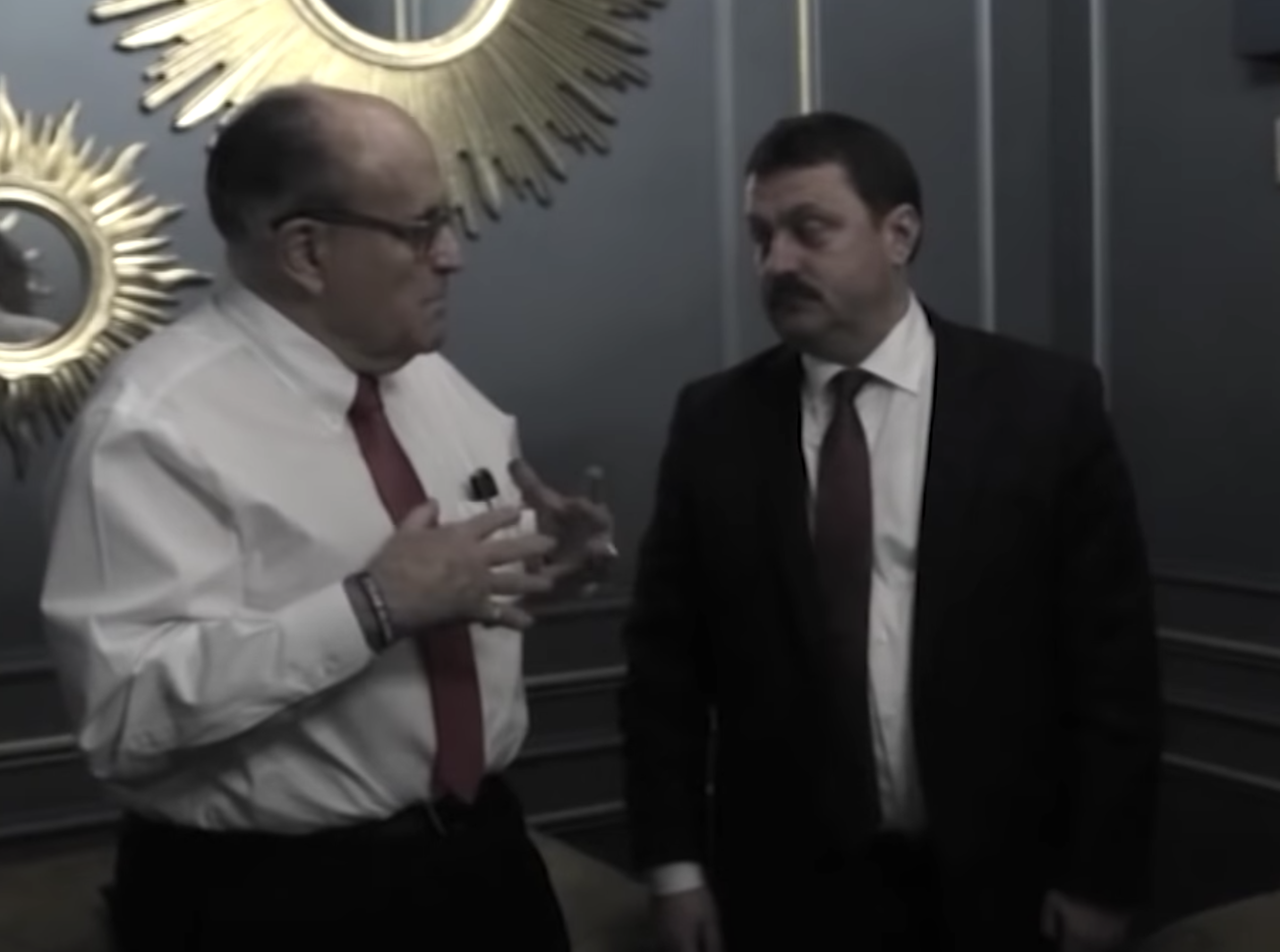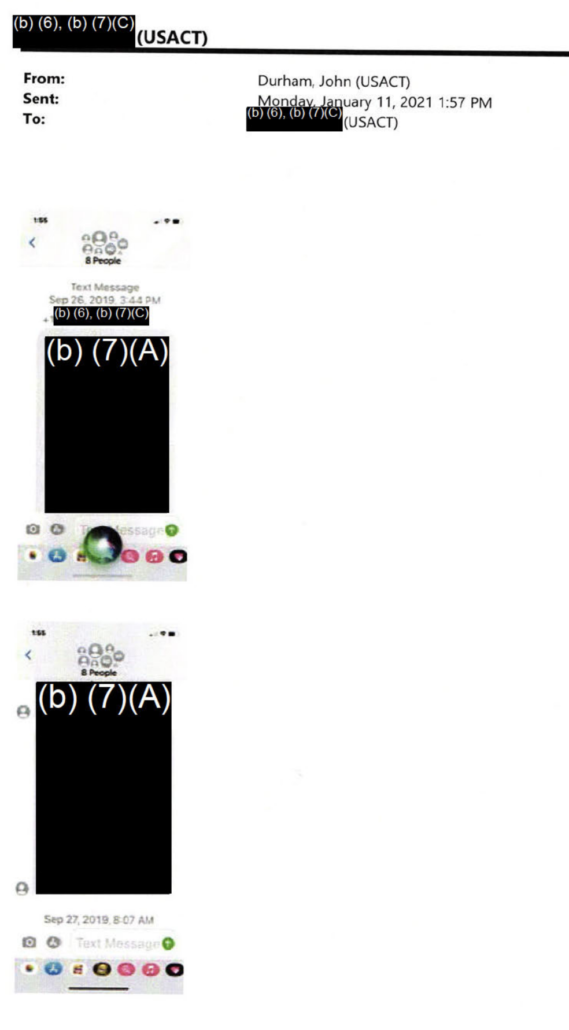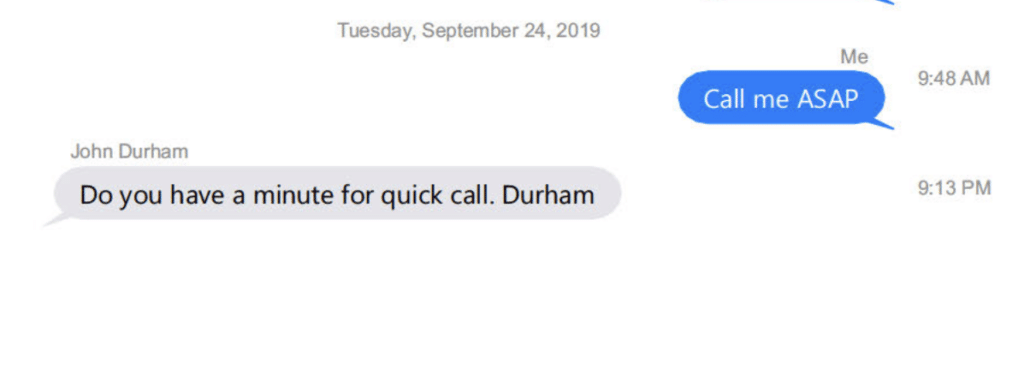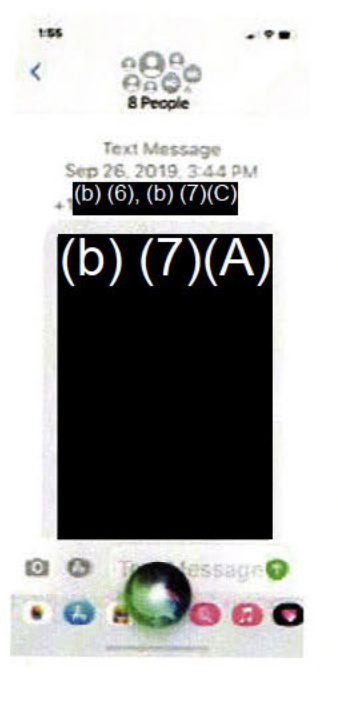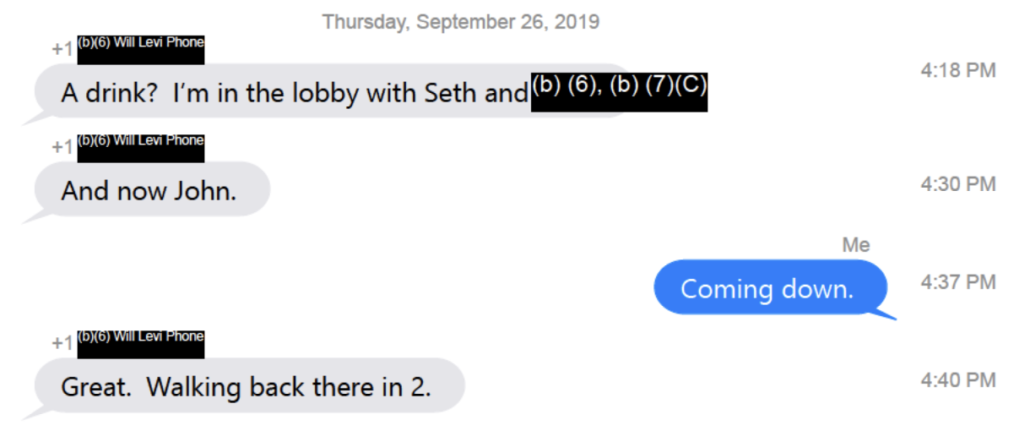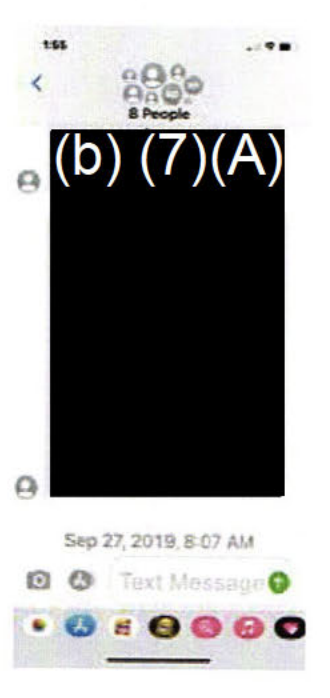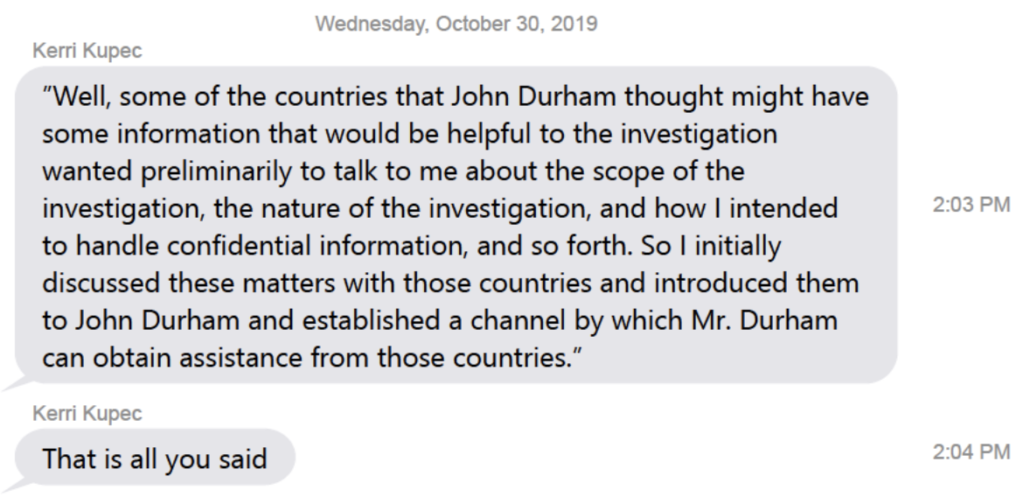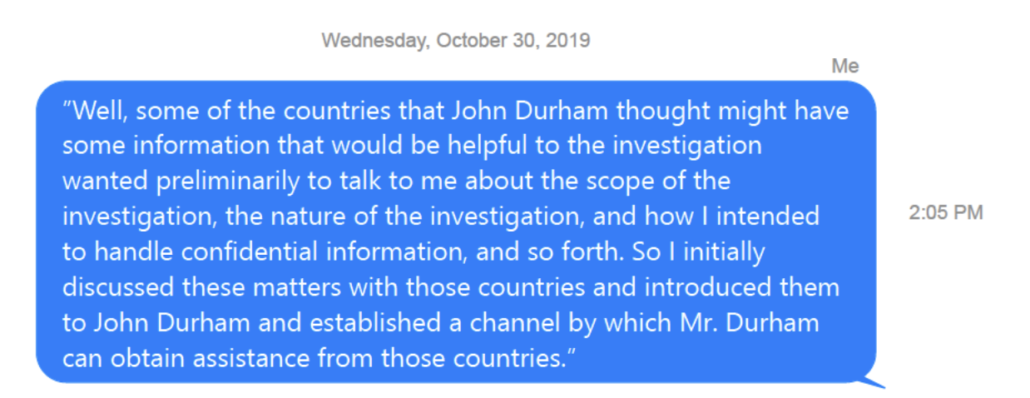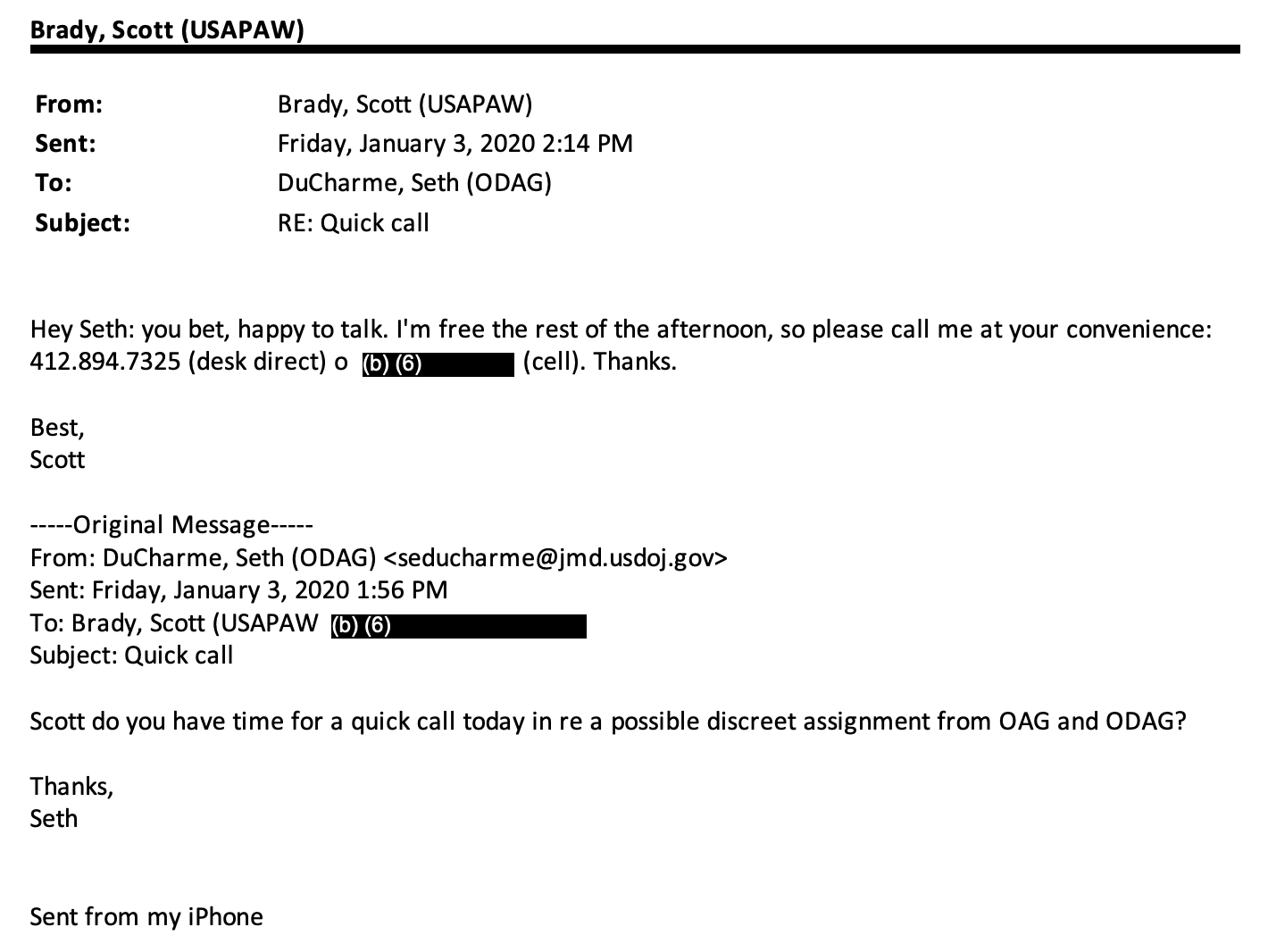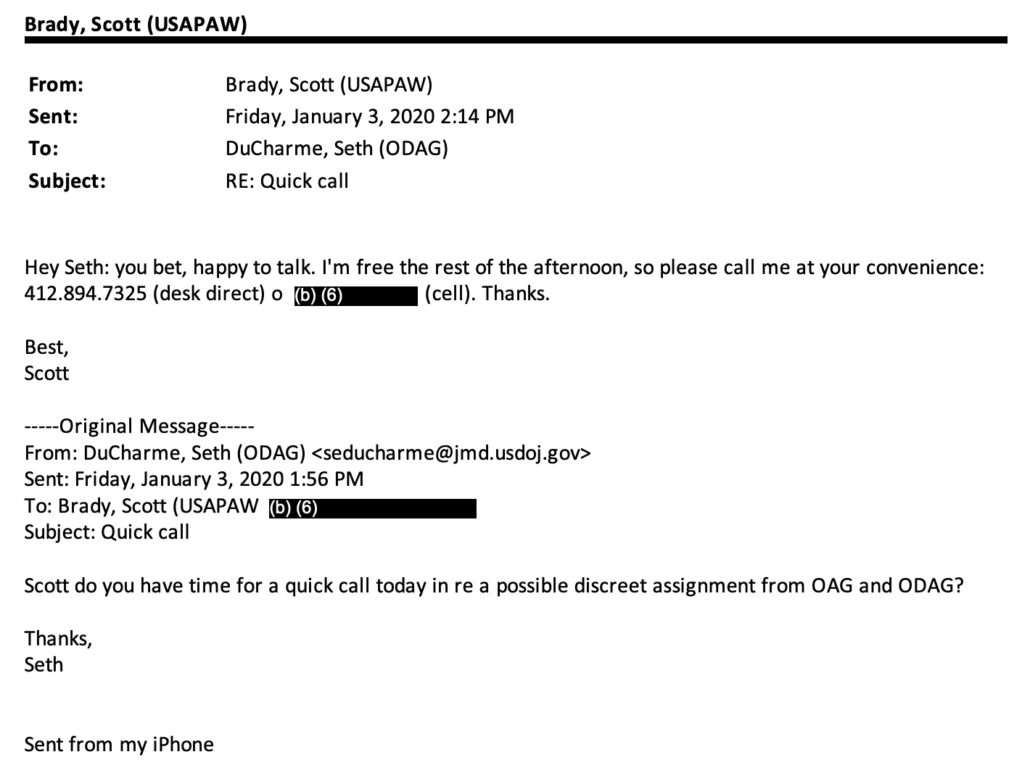Why No One Went to Prison for Rudy Giuliani’s Hunter Biden Corruption
Like many people, I’ve watched From Russia with Lev since it was released the other day.
The documentary tells a story I’ve covered here in real time: of how, with Lev Parnas’ help, Rudy Giuliani solicited dirt on Hunter (and Joe) Biden from foreigners, mobsters, and Russian spies, in hopes of helping Trump stay in office.
As told, with Lev’s spouse Svetlana serving as a key narrator, it’s a compelling, personal story.
I’ve also told — am one of the only people who has told — the story that many people are now asking: why no one went to prison for this caper. The documentary has led many people, understandably, to demand to know why no one (besides Lev, they sometimes say, inaccurately) went to prison for all this, which has, predictably, led to the same conspiratorial bashing of Merrick Garland we saw with the January 6 investigation.
The question is premised on certain choices the filmmakers made: focusing away from Dmitry Firtash and especially from Andrii Derkach (who got involved after Lev was done), crediting the spin of Lev’s attorney, Joseph Bondy, and simplifying the investigation of Hunter Biden. The film doesn’t fill in any of the gaps I noted in Lev’s book, and creates new ones. It creates the appearance that Lev was prosecuted solely to protect Trump from impeachment and that the investigation into Hunter arose solely out of Rudy’s efforts. Those choices make sense for narrative and legal reasons, but as a good story does, it simplifies the issue.
And I promise you, the film vastly understates the corruption that went on. Wildly understates it. One goal I have for Ball of Threads is to unpack what is currently known of that far deeper corruption, but that still just scratches the surface.
The quick explanation of why Rudy didn’t go to prison for this is that:
- Bill Barr did wildly corrupt things to protect him, Donald Trump, and himself
- By the time, shortly into the Biden administration, DOJ tried to pursue Rudy, Rudy’s phones were corrupted
Trying to hold Garland responsible for failing to prosecute the underlying crime amounts to doing Bill Barr’s propaganda work, because Barr worked relentlessly to protect Rudy.
You can, however, hold Garland responsible for one thing: the continued appointment as Special Counsel of David Weiss, who as a witness to Barr’s corruption, is conflicted in any investigation pursuing Alexander Smirnov’s attempts to criminally frame Joe Biden.
This post explains all that in more detail.
Lev didn’t go to prison for the Hunter Biden stuff
As I said, the film leaves the impression that Lev was arrested to protect Trump during impeachment by silencing the key witness.
But that’s not why Lev went to prison (as a news clip in the movie tacitly admits).
Lev and Igor Fruman (along with David Correia and Andrey Kukushkin) were first charged on October 9, 2019, via indictment that was (according to then US Attorney for SDNY Geoffrey Berman’s memoir) drafted quickly overnight in advance of Lev and Igor’s trip to meet Dmitry Firtash in Vienna. From Berman’s memoir, I’m not 100% sure whether he pushed it because he genuinely feared they were about to flee the country, felt he had to do so before Barr intervened … or for more nefarious reasons.
The charges were:
- Conspiring to make a bunch of political donations in the name of Global Energy Producers
- Lying to the Federal Election Commission
- Falsifying a document to the FEC
- Laundering donations from Russian Andrey Muraviev to pay pro-cannabis politicians
As Bondy described, the indictment implied that Lev and Igor’s political contributions to Pete Sessions were tied to an attempt to fire Marie Yovanovitch. But that was not charged as FARA.
On September 17, 2020, the indictment was superseded. Lev and Correia’s longterm Fraud Guarantee fraud was added and the charges tied to Muraviev (who was secretly indicted that same day) were bumped up. The paragraph describing a payment to Sessions took out the reference to an Ambassador, describing it instead as to “further their political goals.” There were still no FARA charges though.
Ultimately, Lev was convicted at trial in October 2021 of the GEP and Muraviev donations, and in March 2022, pled guilty to the fraud guarantee charges. He was never charged with FARA violations.
Bondy’s insinuation that SDNY took out the foreign agent aspect to protect Rudy is wholly inconsistent with the warrants (linked below) targeting Lev and Rudy unsealed last year.
They show that the investigation into Lev, which started based on a Campaign Legal Center complaint, initially focused on campaign finance crimes. In August 2019 — after the firing of Marie Yovanovitch but before the disclosure of the Perfect Phone Call — SDNY began to turn to Foreign Agent suspicions (though one of two warrants obtained in August 2019 was not executed). After the arrest, SDNY more aggressively turned to developing the Foreign Agent prong of the investigation. On November 4, 2019, SDNY obtained warrants targeting Rudy (which were not released last year). On December 10, 2019, the Foreign Agent prong continued.
That’s when Bill Barr intervened to kill that prong of the investigation, certainly as it pertained to Rudy, as I’ll lay out below.
After that point, SDNY focused on the Fraud Guarantee fraud.
It’s not that Lev went to prison for this but Rudy did not. On the contrary, Barr worked hard to ensure no one could go to prison on such charges.
While Barr was doing that, SDNY appears to have put that investigation on ice and attempted, without success, to resuscitate once Barr was out of office.
SDNY believed Lev was not fully forthcoming
The film makes it sound like SDNY refused Lev’s efforts to cooperate against Rudy and everyone else.
It’s more complicated than that.
SDNY has a rule: To enter into a cooperation agreement with them, one has to plead to all crimes. Geoffrey Berman described it this way in his memoir, explaining why SDNY didn’t give Michael Cohen a cooperation deal.
Cooperation in the Southern District means full cooperation—taking responsibility for all criminal actions, not just a select few. If any one area of a defendant’s life is off limits, we do not recommend leniency in sentencing. (Some districts are more transactional: you give a little, you get a little.)
When defendants agree to this and become cooperating witnesses against others, their testimony is more credible. Our prosecutors can tell juries that if the cooperator is caught lying, the agreement can be revoked and he or she will be prosecuted not only for the crimes covered at trial but for a host of others that the cooperator copped to as part of his agreement.
The SDNY rules also serve as a powerful investigative tool, because when you acquire absolute cooperation, your avenues for making other cases expand dramatically. We often learn of additional criminal activity—whole new threads of wrongdoing that in some instances we knew nothing about.
That’s one reason why SDNY didn’t give Lev a cooperation agreement. As SDNY explained in their sentencing memo for him, Lev’s attorney, Joseph Bondy, proffered information in the months after his arrest in October 2019. But Bondy provided details that were contradicted by the evidence (at the time, Lev may not have understood that FBI had obtained iCloud content he deleted). SDNY then did a reverse proffer on November 6, 2019 (two days after obtaining a warrant for Rudy’s comms), meaning they told Lev and Bondy all the evidence they had against Lev. After that, Bondy replied saying that Parnas was unwilling to plead guilty to the campaign finance crimes charged against him.
After that meeting, Parnas’s counsel wrote the Government to report that he could not “accept responsibility for criminal activity for which he is not guilty,” which based on discussions with counsel, the Government understood to be a reference to, among other things, the campaign finance and false statements offenses of which Parnas now stands convicted.
That’s consistent with Parnas’ own memoir, in which he still attributes the campaign finance stuff as a lack of awareness of the law and of the Russian source of the money he was throwing around.
According to SDNY, that unwillingness to fully accept responsibility continued when Parnas did sit for a proffer on March 5, 2020.
In addition, SDNY was unable to corroborate some of the things Parnas claimed in that March proffer.
[T]he Government was ultimately unable to corroborate significant portions of what Parnas said.
This was during a period when Barr was aggressively trying to limit SDNY’s investigation, so it may not have been Lev’s fault they couldn’t corroborate this stuff.
Finally, DOJ generally has a rule: Cooperating witnesses who chat to the press are usually useless as witnesses. This makes sense for a lot of reasons, not least that it alerts criminal targets of what prosecutors do and don’t know. SDNY told Parnas this early on, in November 2019, and his early 2020 interviews would have only exacerbated this.
At the close of that [November 6, 2019] meeting, the Government informed Parnas that public spectacles, leaks, and social media postings could undermine his credibility and diminish his value as a potential cooperating witness.
Given Barr’s fuckery, I don’t know if Parnas could have pulled off cooperation in any case. But even without it, things he himself did made it virtually impossible he could get a deal from SDNY.
And honestly, it wouldn’t have served his purposes. He needed to come out publicly against Trump, but that was inconsistent with the ability to cooperate criminally. The impeachment was his one shot for accountability, and Congress blew that. (As I was writing this, I considered that, had Democrats made Lev’s testimony more central to impeachment, Republicans might have forced Hunter Biden to testify, as they were threatening at the time; I have long wondered whether Trump’s impeachment defense team had a copy of the laptop.)
Bill Barr insulated the impeachment review from the Hunter Biden caper
The film focuses closely on how, after Trump’s Perfect Phone Call with Volodymyr Zelenskyy was released, onetime Trump defense attorney John Dowd, speaking as a lawyer for Lev and Igor, first refused to cooperate with Congress. Their arrest, days later, put Parnas and Fruman at the mercy of lawyers arranged by Trump, until Parnas hired Bondy.
It is true that their arrest discredited them as witnesses.
But it wasn’t just their arrest that limited the investigation from impacting impeachment. DOJ also did some tactical things to prevent the Trump impeachment from merging with Lev’s prosecution.
When Lev and Igor were arrested, DOJ told the press that Barr had been briefed on the investigation from early in his tenure as Attorney General.
That seems inconsistent with a claim that Barr made in his memoir (which IMO is largely CYA about these matters). Barr claimed he had no awareness of Rudy’s efforts to investigate Biden, and only learned of it from news reports.
By the spring of 2019, I had noticed news stories stating that Giuliani was pushing the Ukrainians to investigate Biden’s role in Shokin’s dismissal. But other than what I glimpsed in the media, I had no knowledge of the former mayor’s activities. During the spring, I expressed my concern about Giuliani with the President. As I was leaving an Oval Office meeting on another topic, I paused briefly to raise the matter.
“Mr. President,” I said, “I don’t think you are being well served by Giuliani at this point. Mueller is over, and Russiagate is dying. Why is Giuliani thrashing about in Ukraine? It is going to blow up—”
“Yeah,” the President said, cutting me off. “I told him not to go over there. It was a trap.” President Trump gave the impression Giuliani had a degree of independence and was going to pull back. I did not press the point.
Even imagining that SDNY kept these details from Barr, by August 14, 2019, it is highly likely that the National Security Division had notice of the focus on Rudy. That’s when possible Foreign Agent charges (and a reference to Marie Yovanovitch) got added to the warrants targeting Lev and Igor.
NSD head John Demers was one of the first people at DOJ to review the Perfect Phone Call. He did so, on August 15, 2019, after SDNY had turned to FARA crimes normally overseen by NSD.
That may explain why DOJ did something that served to insulate the Public Integrity (PIN) review of the Perfect Phone call from the ongoing investigation of Rudy’s efforts with Lev and Igor: Demers and Criminal Division head Brian Benzkowski only had PIN review the transcript of the call, not the full whistleblower complaint. Had investigators done what investigators have been ordered to do since 9/11 with the full complaint, they would have searched on all the references in the complaint, including those in the OCCRP report on Lev and Igor referenced repeatedly in it. That, in turn, should have identified the SDNY investigation, which would have immediately implicated Trump in the investigation.
Effectively, by focusing solely on the transcript, someone at DOJ deliberately blinded that PIN review to an ongoing FARA investigation, thereby eliciting a clean bill of health for Trump.
There’s a lot more that Barr did as the scandal unfolded, as I’ve laid out here and here. But the first thing someone at DOJ did was to gin up a prosecution declination before anyone could tie Trump’s coercion of Zelenskyy with the existing investigation into Lev and Igor.
Bill Barr played a shell game to protect Rudy’s “collusion” with a known Russian spy
Barr was nowhere near done.
There seems have been an ongoing cat-and-mouse between SDNY and Barr.
When SDNY got the indictment, according to Berman, they got approval from two PIN prosecutors in the middle of the night, not NSD, which may be why only the campaign finance crimes were in the indictment and only the campaign finance crimes were on the warrants for the searches done the day of arrest (this would have served to hide that part of the investigation from Lev and Igor, too). That’s the biggest piece of evidence that SDNY did not arrest Lev and Igor as a favor for Barr, as he attempted to kill impeachment, but the reverse.
In October, SDNY got warrants to search everything for the FARA crimes. On November 4, 2019, SDNY got warrants targeting Rudy for FARA crimes.
On December 5, 2019, Rudy met, with Barr’s foreknowledge, known Russian asset Andrii Derkach.
And on December 10, 2019, SDNY got further warrants in that investigation.
DOJ had just let Rudy meet with a Russian spy while SDNY had an ongoing investigation into whether Rudy was working with foreign spies. It was insane to let that happen in any case. All the more so given the ongoing investigation from the Sovereign District of New York, as SDNYers like to call themselves.
So Barr had to gut SDNY’s sovereignty.
Barr did several things:
- Assigned any investigation of Derkach, with whom Rudy had just met, to EDNY, not SDNY where it would be a natural follow-on.
- Made EDNY US Attorney Richard Donoghue the gate-keeper for all Ukraine investigations, requiring SDNY to get permission from him before taking any investigative steps against Rudy or Lev.
- Asked Pittsburgh US Attorney Scott Brady to play a role. Publicly, Barr and Brady claimed this was a vetting process of tips from Ukraine. But Brady’s congressional testimony revealed he did almost no functional vetting; he ignored evidence from the impeachment and some key public articles. Plus, he did more than vetting. Brady also checked in on investigations into all the oligarchs from whom Rudy had solicited dirt on Hunter Biden, with uncertain outcome; he tried to tell SDNY he knew better than they did about their investigation; he demanded details about the investigation into Hunter Biden. Most importantly, some yet unidentified person told Brady to seek out FBI informant Alexander Smirnov, who had made a reference to Hunter Biden in an informant report about Mykola Zlochevsky years earlier. By May 2020, Smirnov was allegedly attempting to frame Joe Biden with allegations of bribery, and Brady made that part of his work. Once again with Smirnov’s allegations, Brady did little functional vetting, falsely claiming that his travel schedule confirmed the claim, rather than debunked it.
- Barred the FBI Agents working with SDNY from receiving certain information, including Rudy’s interview with Scott Brady.
- Ordered David Weiss, whom DOJ had put in charge of an investigation into DC and CA resident Hunter Biden, to consult with Brady on his tips.
These efforts halted what should have been obvious next steps in the SDNY investigation, ensured Rudy could share information obtained from a known Russian spy with no legal risk, and ordered that some of Rudy’s information be used in an investigation of Joe Biden’s kid. DOJ was literally protecting a Russian influence operation, because it served the interest of the President.
The biggest reason why Rudy didn’t go to prison for this is that Barr protected this entire process, including the solicitation of dirt from a known Russian spy.
DOJ approved steps against Rudy on Lisa Monaco’s first day on the job
While Trump remained in office, SDNY tried several more times to get warrants targeting Rudy, but were denied.
On Lisa Monaco’s very first day on the job, April 21, 2021, SDNY finally obtained warrants targeting Rudy. Merrick Garland’s DOJ did precisely what everyone is wailing for: He immediately permitted prosecutors to advance this long-thwarted investigation.
Based on what we can see, there were at least two limitations on the investigation, however. First, the warrants targeting Rudy did not include the Trump lawyer’s January 29, 2020 interview with Scott Brady. That suggests Rudy’s effort to share dirt from Russian spies was still protected as cooperation rather than confession, even after Garland took over (indeed, that’s what Rudy pointed to to argue he couldn’t be searched at all, his “cooperation” with Barr). Just as importantly, while some of the 2019 warrant affidavits mentioned Donald Trump’s call to Volodymyr Zelenskyy, the 2021 warrants did not. I would be unsurprised if Barr got OLC to write a memo putting all that off limits before they left office.
Aside from that, DOJ’s approach to Rudy Giuliani remained remarkably aggressive, contrary to what virtually every news outlet will tell you. Importantly, SDNY did something no one else has reported: They installed a Special Master and got permission to review Rudy’s content — all Rudy’s post-2017 content — for privilege. Among other things, that freed up content, including at least one document the January 6 Committee did not get, for any other investigations.
Nevertheless, the delay (or possibly corrupt Rudy dead-enders in NY) appears to have killed any chance of pursuing Rudy for his role in soliciting dirt from Russian spies and others to attack Hunter Biden. On November 14, 2022, SDNY informed the court that the grand jury had concluded without filing charges (though Rudy’s lawyer and Hunter Biden laptop co-conspirator, Robert Costello, has never substantiated a declination letter). In a July 25, 2023 declaration in the Ruby Freeman lawsuit, Costello revealed one potential explanation: many of the devices seized from Rudy obtained in April 2021 were corrupted. Costello blamed the FBI’s contractor for making the phones unusable.
Not all the devices were corrupted, however. As noted, the privilege log from Freeman’s case shows a great deal of files pertaining to January 6 were successfully extracted, including a few identifiable files not obtained by the January 6 Committee.
DOJ also seized a phone from Victoria Toensing. But the value of that may have been limited by attorney-client privileged tied to Firtash, the same privilege which has, at times, led Lev (because he was a translator in that relationship) to limit his own comments about Firtash in all this. To fully unpack what happened, you’d need to know what promises Toensing made to Firtash and what Barr knew about them.
Attorneys General have vast discretion
In a just world, Bill Barr could be held accountable for the corruption he enabled. But that’s virtually impossible under the structures of impunity our system accords prosecutors and Attorneys General.
I’m neck-deep in a post on the three IG investigations pertaining to Bill Barr’s corrupt conduct.
- July 24, 2024 Roger Stone Sentencing
- July 25, 2024 Discarded Trump Ballots
- July 31, 2024 Lafayette Square Response
All of them conclude that however nuts Bill Barr’s conduct was, the expansive authority of the Attorney General means that his actions, including his intervention into the sentencing for Trump’s rat-fucker and his decision to share details of minor infraction by someone whom Barr knew would never be charged for political gain, were within the discretion of the Attorney General.
DOJ IG has spent over four years investigating Barr’s corruption, and thus far, they have always concluded that as Attorney General, Barr’s discretion was so vast that he can break all of DOJ’s rules prohibiting its politicization.
There’s still at least one IG Report including Barr’s conduct outstanding (almost certainly, the ongoing investigation into DOJ getting the communications records of journalists for whom people like Jim Comey might have been a source). But of all the fuckery I know Barr to have committed, I can envision only a few details of his conduct might even remotely end up the focus of criminal investigation.
Even the most corrupt insinuations about Rudy’s efforts, in which Rudy allegedly offered Ihor Kolomoyskyi, Dmitry Firtash, and Mykola Zlochevsky relief from criminal investigations for dirt on Hunter Biden, would be included in this.
Lev explains why in his book: This was deliberately framed as the exact equivalent of Andrew Weissmann’s efforts to flip Firtash for information on Paul Manafort.
Andrew Weissman, who was lead prosecutor for the investigation of Russian collusion in the 2016 Election, had gotten there first. He offered a deal in which Firtash could avoid prison if he testified about the relationship between Trump and Russian President Vladimir Putin. The inclusion of Putin meant that Firtash would never take the deal. Nobody over there wants to make Putin angry.
Nobody else knew about the deal he was offered. Giuliani and Solomon wanted Firtash’s legal team to make it public. His Viennese lawyers were against it, so Firtash was reluctant. Soon, in a heated meeting in Vienna, an argument between some of Firtash’s legal team led to Victoria Toensing, who was on our team, confronting Dan Webb about it months later. Webb — who was connected with Weissmann, William Barr and other heavy hitters — admitted to the deal.
Still, we convinced Firtash that we — who were representing Trump’s interests — could help him with his extradition far more effectively than Weissman. The real goal for us was to get Firtash to use his contacts to pressure President Zelenskyy to announce an investigation of the Bidens. Our pitch was successful, Firtash agreed to hire Giuliani for $1 million. And $200,000 for me to be official translator and to be under the attorney-client privilege umbrella.
Prosecutors trade leniency for information on other crooks all the time. Here, however, it was the Attorney General, who had never served as a prosecutor himself, who would be making those deals, offering leniency to foreign oligarchs if they could offer dirt on Donald Trump’s likely opponent.
It’s unclear whether, and if so what, deals were made: an investigation into Zlochevsky was reportedly shut down in December 2019; investigations into Kolomoyskyi ratcheted up in 2020; and the prior investigation into Dmitry Firtash remains deadlocked on his extradition, as it has been for years.
But these kinds of deals would be consistent with an elaborate effort Barr makes in his book to spin Trump’s pursuit of dirt on the Bidens as a legitimate law enforcement pursuit, the logic of Trump’s impeachment defense taken to its logical conclusion.
It’s all transparent bullshit. But it would also be virtually impossible to debunk at trial, even if you could get beyond the vast discretion of an Attorney General.
David Weiss’ appointment threatens to limit further fallout
There’s one thing I do fault Merrick Garland for: For not removing David Weiss from the investigation into Alexander Smirnov.
By all appearances, Weiss asked to be appointed Special Counsel only after he renewed his focus on Smirnov in July 2023, after receiving, but blowing off, the allegation days before the 2020 election, on October 23, 2020.
Investigating Smirnov’s allegation that Joe Biden accepted a bribe from Burisma was the first thing that focused the investigation onto Biden, after the original prosecutor, Lesley Wolf had successfully avoided that focus for years. It was the first thing that created a real conflict with working for Joe Biden.
And Weiss bases his authority to prosecute Smirnov for lying when he started chasing that hoax on his Special Counsel authority. He could only do so if he were legitimately chasing that hoax as witness testimony.
Here’s the problem with that: David Weiss is a witness in what should be a broader investigation into how a side channel set up by Bill Barr ended up discovering an informant who once met Mykola Zlochevsky and then not vetting the false claims he made. At the very least, there should be an investigation into who — everyone swears it was not Rudy, and Smirnov has at least three other links to people close to Trump — alerted Brady that Smirnov might offer up such claims.
Bill Barr’s deputy ordered David Weiss to accept briefing on this hoax. He ordered him to let Scott Brady snoop on Weiss’ investigation of Joe Biden’s kid. That makes Weiss a witness. Once Smirnov became a subject rather than a witness, that created a conflict that should disqualify Weiss from overseeing an investigation into the former informant and the circumstances that allowed him to make allegedly false allegations against Joe Biden.
Merrick Garland should (at a minimum, though I could argue more broadly) move the primary team prosecuting Smirnov under supervision without such conflicts. A system set up by Bill Barr criminally framed Joe Biden, and a guy who worked with Bill Barr on that case continues to supervise the aftermath.
The complicity of the press
There’s one more party that demands accountability: The press.
Much of what I wrote in this post is public. It requires diligent reading, but not great access to Donald Trump or anyone else.
Not only has this entire story not been reported by mainstream outlets. Not only did NYT affirmatively obscure Rudy’s role in all this (and therefore Trump’s) in their one attempt to cover it. But one after another journalist — especially at NYT — writes stories that disappear the Hunter Biden pursuit from all of Trump’s abuse of DOJ. Indeed, some outlets, including Rachel Maddow’s parent company, seem to treat Hunter Biden as a gossip rag to drive clicks, rather than the locus of unprecedented corruption. Rather than chasing this story, or even asking Bill Barr direct questions about it, one after another TV star invites him on as if he’s a critic of Trump’s corruption, rather than a key player in it. WaPo’s Will Lewis pointed to a badly conflicted Hunter Biden piece as his antidote against accusations of lefty bias.
Want to know how Rudy Giuliani was allowed to solicit dirt from Russian spies to help Trump get elected, without accountability? Want to know why Barr is considered a critic of Trump rather than his most corrupt enabler? Ask the journalists who lost interest in that story as soon as Rudy released a laptop full of Hunter Biden’s dick pics.
From Russia with Lev begins to reverse all that. But as infuriating as it is, it barely scratches the surface.
Timeline
Below, every bullet is a known warrant. The ones not linked were described in a passage that failed to be fully redacted in a Lev Parnas filing. This document compares the Foreign Agent focus of the three warrants bolded below.
- January 18, 2019, 19 MJ 1729: Yahoo and Google content
May 15, 2019: Marie Yovanovitch firing public
- May 16, 2019, 19 MJ 4784: iCloud content
- August 14, 2019, 19 MJ 7593: Yahoo and Google content since January, with expanded focus
- August 14, 2019, 19 MJ 7594: Unknown warrant
- August 14, 2019, 19 MJ 7595: Existing Yahoo and Google content, with expanded focus
September 25, 2019: Disclosure of Perfect Phone call
October 9, 2019: Lev Parnas and Igor Fruman arrested
- October 17, 2019, 19 MJ 7595: Actual authorization of the warrant approved in August
- October 21, 2019, 19 MJ 9829: iCloud content since May
- October 21, 2019, 19 MJ 9830: Unknown warrant
- October 21, 2019, 19 MJ 9831: Devices from Dulles
- October 21, 2019, 19 MJ 9832: Existing iCloud content for expanded focus
- November 4, 2019: Warrant for Rudy’s iCloud
- November 4, 2019: Warrant for Rudy’s email
- November 4, 2019: Warrant for Victoria Toensing’s iCloud
- November 6, 2019: Warrant for Yuriy Lutsenko’s email
December 5, 2019: Rudy meets with known Russian asset, Andrii Derkach
- December 10, 2019, 19 MJ 11500: Stuff seized from residences for foreign agent focus
- December 10, 2019, 19 MJ 11501: Instagram
- December 10, 2019, Warrant for Roman Nasirov’s email
- December 13, 2019, Warrant for Victoria Toensing’s email
December 14, 2019: Barr aide texts him: “Laptop on way to you”
January 3, 2020: Barr establishes dedicated channel to ingest Rudy’s dirt
January 17, 2020: Jeffrey Rosen makes Richard Donoghue a gatekeeper for all Ukraine-related investigations
- February 28, 2020: iPhone of Alexander Levin
- March 3, 2020: iPad of Alexander Levin
- March 20, 2020, 20 MJ 3074: Fruman iCloud content obtained with October 21, 2019 warrant to cover earlier periods
June 20, 2020: Barr fires Geoffrey Berman
November 2020: SDNY denied authority to seek devices of Rudy Giuliani
January 2021: SDNY denied authority to seek devices of Rudy Giuliani
- April 13, 2021: Cell site data for Rudy and Toensing
April 21, 2021: Lisa Monaco sworn in
- April 21, 2021, 21 MJ 4335: Rudy’s office, residence, and devices
- April 21, 2021: Victoria Toensing iPhone


